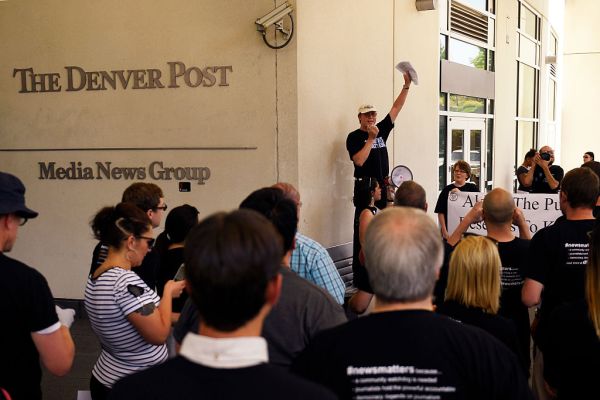In 1982, criminologists James Wilson and George Kelling introduced the “broken windows theory” in criminal justice. They argued that small signs of neglect, like a broken window, could signal disorder and invite more serious crimes. Today, America doesn’t have just one broken window—it has tens of thousands. Each chronically failing school, every undeveloped park, each spike in local crime rates, and every unresponsive city bureaucracy is another broken window. Individually, they are minor. Collectively, they spell the civic catastrophe undermining America’s strength, unity, and pride.
This isn’t a MAGA problem or a progressive problem. It’s not a crisis rising from grand ideological clashes in Washington but from our collective disregard for local civic duty. While our social media timelines and cable news channels obsessively broadcast national political drama, important signs of civic health, like school board elections, routinely see abysmal turnout rates. In some cities like Newark, around 3 to 4 percent of voters decide who governs the education of their children. Over two-thirds of elections nationwide went uncontested in 2024, indicating widespread disengagement, resignation, and overall disinterest. The foundation of our democracy, which depends on active, informed participation at the local level, is disintegrating.
Faced with this national decline, and fueled by our addiction to D.C.’s partisan drama, we look to a national champion to save us. Charismatic icons like Donald Trump and Barack Obama, larger-than-life figures who capitalized and continue to capitalize on discontent, are sent to the White House with the intent to “fix what’s broken.” But the fundamental break in the system isn’t in D.C.: It’s in our local communities, via a recession of civic ambition and competence.
Infrastructure, often portrayed as the responsibility of the federal government, is primarily managed by local and state authorities. When a water system fails in Jackson, Mississippi, and Los Angeles mismanages its fire infrastructure, it isn’t due solely to a lack of national funding or attention: It’s a direct consequence of local negligence and incompetence.
Even housing affordability and local economic performance, often debated at the national level, are fundamentally shaped by local decisions. Restrictive zoning and bureaucratic red tape enacted by state and local governments drive up housing costs and limit economic opportunities. Yet voter turnout remains stubbornly low nationwide, failing to hold local leaders accountable for these decisions.
Education, another critical responsibility of local government, mirrors this decline. While pundits fight over national curricula and ideological purity, fundamental educational outcomes like literacy and graduation rates depend almost entirely on local governance. Despite the stakes, participation in school oversight is minimal or mirrors the national drama, with meetings hijacked by political activists.
But if the problems aren’t in D.C., neither are the solutions. Look at Mississippi. A decade ago its fourth-grade reading scores hovered near last place among every other state in the union. In 2013, the state passed a no-frills literacy package headlined by a mandatory pass-fail third-grade reading test. By 2019, Mississippi posted the nation’s largest education ranking gains, vaulting to the middle of the pack and beating out wealthier states. That’s proof that civic ambition, not federal rescue, moves the scoreboard.
A century ago, American patriotism was based on railway miles laid, colleges founded, and houses built. Individually, these were just numbers on paper, but together they did great things: Those “boring” metrics stitched together a continent, built the world’s best universities, and powered us to victory in World War II. Today, nationalist populists, progressive identitarians, and technocratic libertarians chase symbolic wins while neglecting the basics that once defined American greatness.
We need a different yardstick, a patriotism of performance. Celebrate miles of road completed on budget, reading scores gained, police response times cut, zoning reforms that let people build starter homes. Let a packed budget hearing mean as much as a viral tweet.
That renewal begins with small, unglamorous steps. Walk into the school board meeting, subscribe to your local paper, email your city council, or volunteer for a city commission. None of that trends on social media—and all of it requires you to get off your phone and leave the house—yet each spoke repaired strengthens the wheel on which our nation turns.
America’s national decay isn’t rooted in partisan polarization, cultural battles, or any single ideological crisis. It is the cumulative consequence of thousands of broken windows, tens of thousands of small civic failures left unattended across the country. We have misdiagnosed our ailment, searching for solutions in grand national politics when the true disease is in our backyards. Until we recognize and name this foundational cause for American decline, we will continue to watch America’s strength erode. Not loudly, dramatically, or ideologically, but one broken window at a time.









Please note that we at The Dispatch hold ourselves, our work, and our commenters to a higher standard than other places on the internet. We welcome comments that foster genuine debate or discussion—including comments critical of us or our work—but responses that include ad hominem attacks on fellow Dispatch members or are intended to stoke fear and anger may be moderated.
With your membership, you only have the ability to comment on The Morning Dispatch articles. Consider upgrading to join the conversation everywhere.